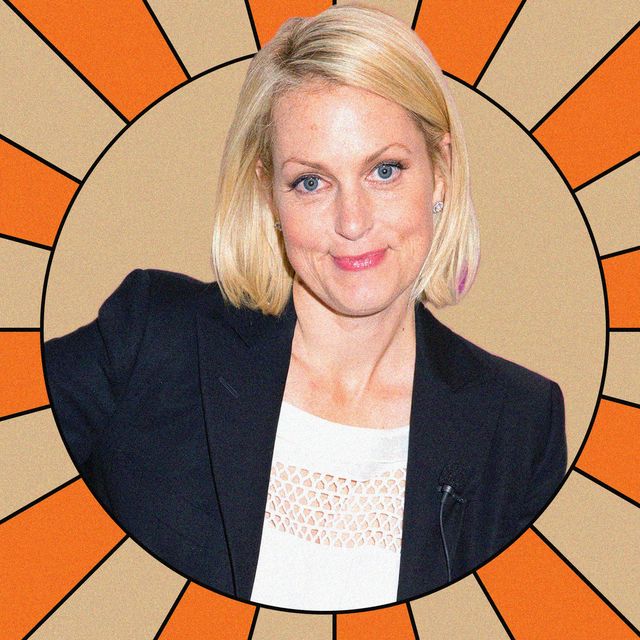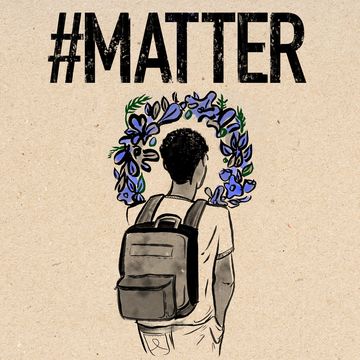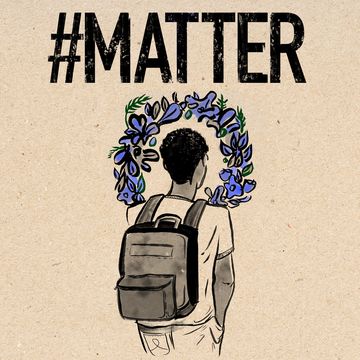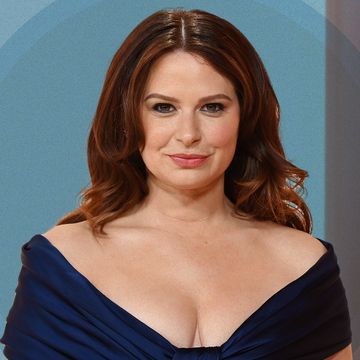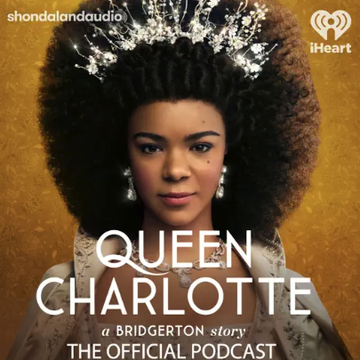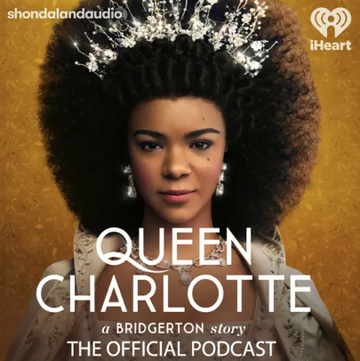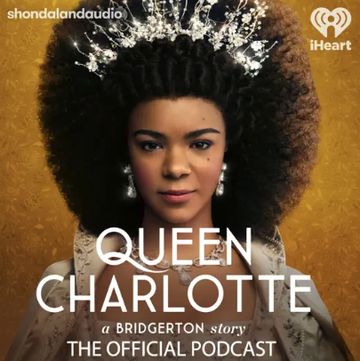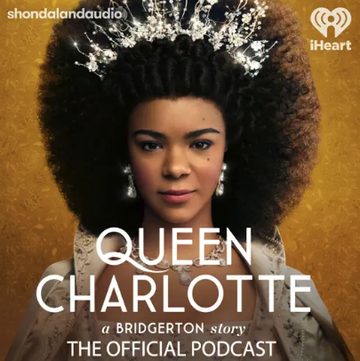In the first season of Ali Wentworth’s first podcast, Go Ask Ali — which was conceived, produced, and aired within the first pandemic of our lifetime — the actor, comedian, and New York Times best-selling author trained a narrow lens on the question “How do you raise a teenager in a pandemic?” In her second season, however, Wentworth — the mom of two teenage daughters and the wife of political news journalist George Stephanopoulos — wants to widen the scope to include more people, more topics, and more more.
“I was clamming all summer,” Wentworth tells Shondaland. “I’m, like, a crazy clammer. I go out in the bay by myself with my wellie boots and my clam rake, I’m out there for hours, and I come out with a bushel full of clams. I give them out to friends or a food pantry. And I said to Brooke, my producer, ‘This season [of Go Ask Ali] is like clamming: I’m going to really dig in. I’m going to get my fingers dirty and try to pull up some gems. That’s really what these [season two] conversations feel like — like we’re really getting to the next layer, trying to find some jewels of wisdom, or some quahogs or steamers of wisdom. This season is like verbal clamming.”
In opening up the floor for a more in-depth look at the cultural things we’re all thinking about, Wentworth plans to deliver buzzy, engaging episodes that focus on conversations in the collective zeitgeist like climate anxiety, how to stay optimistic in the face of so much uncertainty, and cancel culture, all with distinguished guests like Michael J. Fox and Amy Schumer.
“It’s exciting to take a topic and spend the whole 45 minutes delving into it as opposed to a general conversation,” says Wentworth, who spoke with Oprah’s favorite life coach, Dr. Martha Black, about the aging process for the premiere episode of season two of Go Ask Ali, which you can listen to below.
Ahead said premiere, we caught up with Wentworth to chat about the podcast, check in on how she’s been post-Covid contraction, and even get a little love advice as she inches toward her 20th wedding anniversary. Be sure to subscribe to Go Ask Ali at Apple, iHeart, or wherever you get your favorite podcasts.
VALENTINA VALENTINI: So, we know there’s going to be a shift in topics from season one to season two. Is there also a shift in tone?
ALI WENTWORTH: No, the tone is pretty much the same. I always feel like I’m in graduate school, and I’m so genuinely interested in what we’re talking about. So, I actually forget sometimes that I’m even doing a podcast. I really love the conversation. I want to ask questions. And, yes, I’m driven by my sense of humor. So, I do say things with an entertaining angle in my podcast even though we might be dealing with a very serious subject.
VV: I mean, it’s why we love listening to you — that levity you can bring to even the hard topics. Speaking of, what are these hard topics you think we’re headed for?
AW: I think the biggest thing on people’s minds is figuring out what is the new normal. They’re figuring out socializing, education and such, and how they work with Covid. We just really got beaten up the past two years, and now that we’re kind of coming out from under the rocks, it’s like, “How do I do this now?” I think that people have shifted a lot of their ideas about their own life. They’ve gotten rid of friends or realized that their quality of life could have been better or that they don’t need to go to the office. People are rearranging their lives in a different way, and there are lots of different subjects underneath that big umbrella that are interesting.
VV: Did you learn anything from your first season of podcasting?
AW: Well, I learned that I’m tired of talking about my teenage daughters.
VV: I bet they’d say the same thing too! Maybe they’re tired of being talked about!
AW: Oh, yes. There have been a million fights in our house [laughs]. I would say that when I first started in my first season podcasting, I hadn’t gotten into my rhythm yet. I also felt, as an entertainer, that I had to be more entertaining. And now, I have sort of settled into the fact that I’m really the audience in the podcast. I want to hear what the expert or the person I have on has to say. There’s less of a need for me to entertain, and that makes it a better podcast because it’s not about me. It’s about bringing this person on and asking them questions and having a real conversation.
VV: As an avid listener of podcasts, I really appreciate that. Anything else you learned?
AW: Yes! I also learned that I was in a really uncomfortable chair. And now, I figured out how to be very comfortable, because I think that that helps, believe it or not, with the conversation. And these conversations, I’m not only opening up the topics, but I also want to have more of a universal appeal. And what I mean by that is that I’m talking about things that affect everybody’s lives, no matter their age, socioeconomic standing, or anything. Everybody is having a hard time right now. So, to listen to Michael J. Fox — who has been struggling with Parkinson’s his whole adult life — talk about his optimism, I mean, it’s almost religious. It’s inspiring, and there are lessons in how to appreciate the small things that are the actual things that we can count on right now when there’s nothing else we can rely on.
VV: I hear you’ve got lots of irons in the fire right now besides podcasting. Can you tell us about those?
AW: My husband, George, and I started a production company, and we have a few documentaries being shot right now, and we’re optioning books and working on scripted content. I’m also writing a comedy show, and I’ve just finished my fourth book and am in the editing phase. So, yeah, there’s a lot going on in the house!
VV: Can you tell us about the book at all?
AW: Sure! It’s called Ali’s Well That Ends Well, and it’s sort of a tales-during-Covid story that starts with me getting it and then goes into things that I’ve learned and observed throughout the craziness of this time.
VV: Can you update us on how you’re doing after getting Covid? How long has it been? Was it pretty traumatic?
AW: It was really early on. That was the most traumatic thing about it. I was walking on the beach with my dog, and all of a sudden it was very hard for me to take a deep breath and get oxygen. I kind of had a feeling, you know, because it just was not a symptom I’d ever experienced before. I felt like I had just smoked three packs of cigarettes. So, I got back, and, sure enough, I had Covid. It was scary early on because I was one of the first of my family and friends to get it. And I went on Good Morning America because I felt like it was important to say, “Hi, I have Covid. Here I am in bed with our dog, Daisy. I’m okay. I’m not dying.” Because there was so much fear back then, understandably. Then I quarantined up in my room. I could hear my kids, and I could hear my husband, and I could hear the dogs barking, but it was a very surreal time. It messes with your head, and I started thinking about my own mortality, about my community, about our whole country. I was scared for our country. I was a little bit scared for myself at one point when I thought it was pneumonia, but mostly I was scared for humanity in general. It was weird how people reacted to me having Covid. It was fascinating. Some people got scared themselves, or they got really sad, or they were like, “Oh, well, you’re getting it over with at least, and now you’re going to be immune.” Everybody had a different view. And then you have the whole political thing too. It was kind of a crazy time, but I watched every season of Mad Men, which I would never have otherwise been able to do. What I’m so grateful for is that I didn’t have to go to the hospital.
VV: Well, we’re all really glad you’re healthy again. And I bet your husband is too! Because you and he are celebrating your 20th wedding anniversary this year, aren’t you?
AW: We will hit it in November. November 20th, it will be 20 years. Although we have no idea what to do. We think it’s going to be very quiet — cheeseburgers and watch The Morning Show. I mean, it’s not the right time in the world to have a party, the extravagance, you know?
VV: Do you have any advice for people about to get married? Like, ahem, me?
AW: Oh, congratulations! Yes, my advice is this: When you get married, you have to have the mindset of “This is forever.” You cannot enter a marriage with “Oh, let’s see how this goes” or “If it doesn’t work out, then we get divorced.” You have to really commit. There’s a reason for the ceremony. There’s a reason for the words. When George and I married each other, we took it very seriously — we knew this was for life. There are going to be highs and lows, and you work through the lows, but don’t have the idea in the back of your head that you can jump ship if it’s not working. Unless it’s obviously extreme, of course, but you really go in with a mentality of “We’re in it till the end.” I would also tell you to keep the physical side of your marriage alive; work hard at that because, after a few years, it’s not as exciting as when you were dating. But that is the one thing you have with your life partner, that union. So, keep it alive; keep it burning.
Valentina Valentini is a London-based entertainment, travel, and food writer and also a Senior Contributor for Shondaland. Elsewhere she has written for Vanity Fair, Vulture, Variety, Thrillist, Heated, and The Washington Post. Her personal essays can be read in the Los Angeles Times, Longreads, and her tangents and general complaints can be seen on Twitter at @ByValentinaV.
Get Shondaland directly in your inbox: SUBSCRIBE TODAY
